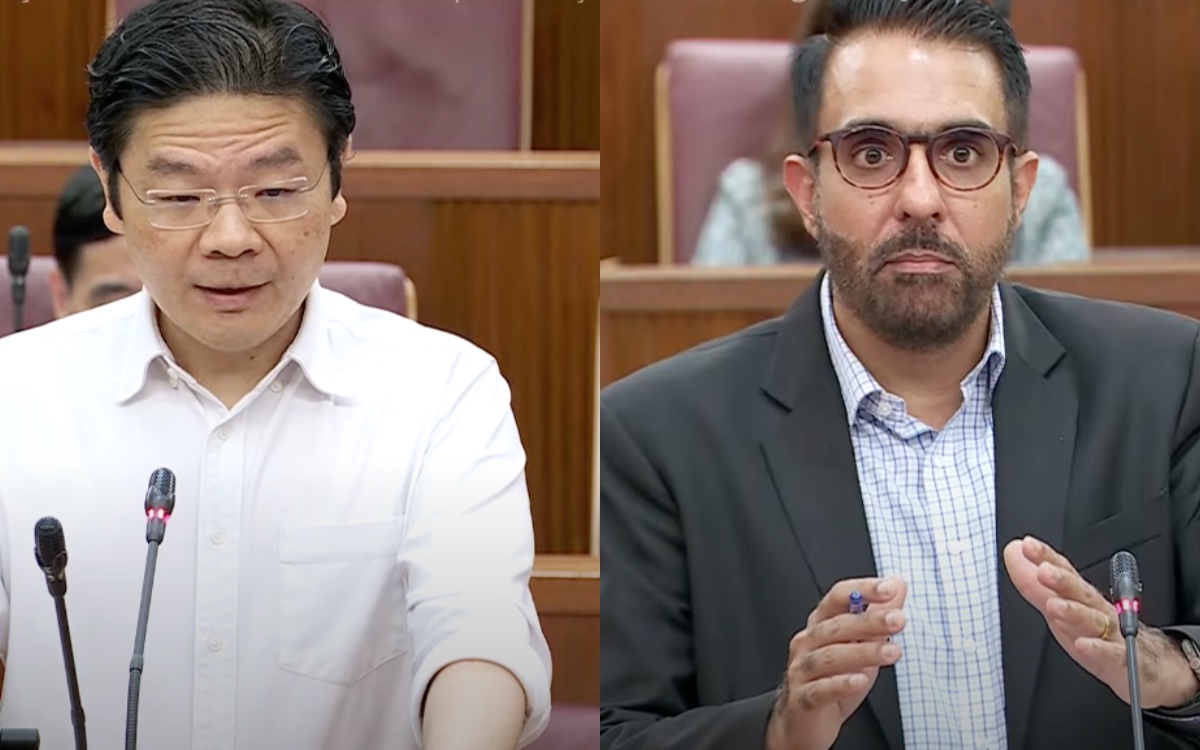Top image: Screengrab via MCI / Youtube
The recent debates between DPM Wong and Workers’ Party MPs left me underwhelmed.
If we care about fighting against populism, then we should relate its issues to people. If we care about developing Singapore’s maturing democracy, we should invite public discussion.
ADVERTISEMENT
This exchange did neither.
I didn’t feel engaged as a citizen who was invited to take part in a greater dialogue. Heck, I didn’t even feel like I was pandered to. Of course, I could be missing something. Perhaps I am not in the target demographic of this exchange.
Let’s say that populist measures are bad. Yes, but why should people care? The layperson has no incentive to care for a term such as ‘populism’.
Imagine you’re struggling to survive here. You care about money, housing, and job security. How will anti-populist declarations resonate with you? What exactly is a populist proposal?
(This isn’t to say people can’t understand why it damages democracies. But to throw the word around seems uncompelling.)
Better to actually convince people that populism hurts. And from the recent spectacle between the People’s Action Party (PAP) and opposition politicians in Parliament, it hasn’t done that.
The debates over party responsibilities in a democracy continue to unfold this week, with PAP taking issue over the opposition’s alleged change in policy positions.
How will these issues hurt people on the ground? How are their fears being addressed? Why should they care?
Engagement hinges on the communication skills of political leaders, and this hardly seems like a controversial demand. Part of a good policy is to be politically feasible. Otherwise, we would not have elections.
A common rebuttal may be that everyday Singaporeans have no patience for these discussions. I say that reeks of the very condescension I’m describing.
On Concrete Alternatives
The same thing happens when we call for ‘concrete alternatives’.
It handily presupposes what our values are. What do we care about? How important is it? In fact, what don’t we care about?
ADVERTISEMENT
Never mind that. The implication is that your thoughts are invalid if you do not give fully formed proposals.
This is like arguing about the best route to take or which vehicle to drive. But not what the destination is. We argue tactics, plans, and methodology. What if we want to go somewhere else—or even get to the destination in the first place?
Our goals should be feasible, of course. But we should start with what those goals are in the first place.
If the road is blocked, then we work on finding alternative routes.
Work in Progress
There is a lot of talk from both sides of the aisle about maturing democracies. Surely, some part of a maturing democracy is to engage the people.
Just as the people are figuring out what they care about, so are policymakers adjusting their proposals.
Demanding concrete certainty is alluring. Yet it’s like putting the cart before the horse. An unfeasible policy that is popular (hence, populist) still informs you of something. It indicates what people feel on the ground.
And if a proposed policy is indeed bad, it will be revealed as such in the arena of public discussion. But by dismissing it out of hand based on being ‘populist’, we kill measured inspections of it. Even so, having discussions about it will move the needle—if just by a little.
The public discussion moves forward, and new values are incorporated. Or our current value structure is reinforced. Either way, we are clearer about what we care about.
Isn’t that the point of dialogue?
As we blindly grope forth in the dark for answers, let’s not chop off our own hands.
It comes back to warding off populism. We do that by convincing people—and we convince people by talking to them.





